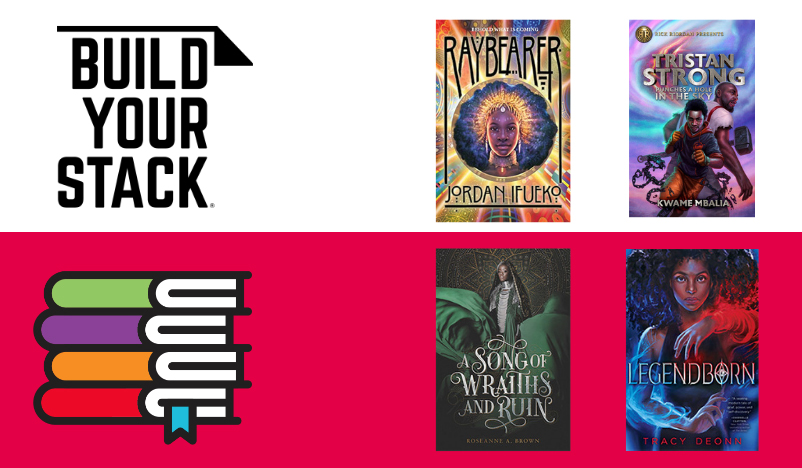This post was written by guest author Ryan Douglass. This blog post is part of Build Your Stack,® a new initiative focused exclusively on helping teachers build their book knowledge and their classroom libraries. Build Your Stack® provides a forum for contributors to share books from their classroom experience; inclusion in a blog post does not imply endorsement or promotion of specific books by NCTE.
Growing up, I turned to science fiction and fantasy books because they offered an escape from the mundaneness of my life. By transporting me to new lands and making me feel like a hero, their imaginative worlds inspired me to become.
Perusing the library, I found books that centered Black kids and that taught of African American history, of cultural connections to music and community, and of a long-fought struggle to be recognized as human. And I found books about characters who went on fantastic journeys, but these characters were often white, and didn’t experience culture and family in the same way I did.
Black storytellers today weave cultural identity through the stakes, magic, and intrigue of science fiction and fantasy. These stories make sense of pieces of cultural identity that have been erased by colonization and the system of racism in the Western world. Studying these works from writers of the African diaspora is a great way to critique outdated social orders in the classroom. Many of these texts discuss history and loss of identity through metaphors and allegories, while featuring magic systems not commonly found in popular media. They highlight issues of privilege and power and use story to repair fractured Black cultures.
By studying them, educators may offer kids an escape, inspire a love for writing, and provide context for dialogues about prejudice in our everyday world, and about the value of community and cultural traditions. As all fantasies do, these books give the reader an underdog to root for and inspire them to feel like heroes.
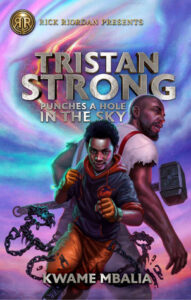 Tristan Strong Punches a Hole in the Sky by Kwame Mbalia (grades 6–8)
Tristan Strong Punches a Hole in the Sky by Kwame Mbalia (grades 6–8)
In a middle-grade fantasy adventure, Mbalia creates a high-stakes world of magic focused on African and African American gods. When Tristan finds himself in the middle of a battle that has left Black American folk heroes John Henry and Brer Rabbit exhausted, he has to join forces with them to entice the god Anansi, the Weaver, to come out of hiding and seal the hole in the sky. The world of Alke will teach Black kids about their own mythology while educating them about the sordid history of the Middle Passage through a humorous text they can digest. Tristan Strong will strengthen vocabulary while inspiring Black boys and kids everywhere to step into their power and see themselves as heroes. The two-book series carries all the accessibility and adventure of Rick Riordan’s Percy Jackson series, while decentering commonly studied Greek myth and teaching African-American history.
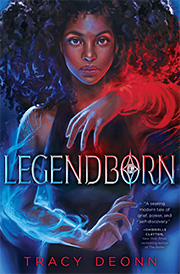
Legendborn by Tracey Deonn (grades 9–12)
In one of the best contemporary fantasies of the year, Tracey Deonn weaves Arthurian myth into a story about a Black girl who spots a flying demon on her first night at a residential program at UNC Chapel Hill. Bree falls into a secret society of so called “Legendborn” students that hunt the creatures down. Through an original magic system grounded in Hoodoo and Black resilience, Deonn draws ties between slave rebellion and the modern reality of what it means to be a Black American today. In a fast-paced, action-packed story, Legendborn opens unflinching dialogues about privilege, power, and racial trauma, while centering a Black girl who must face difficult realities in her family legacy to claim her personal freedom in the modern day.
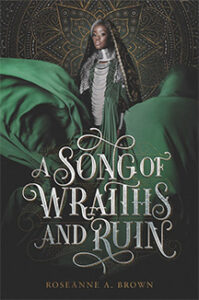 A Song of Wraiths and Ruin by Roseanne A. Brown (grades 9–12)
A Song of Wraiths and Ruin by Roseanne A. Brown (grades 9–12)
This richly textured fantasy is the first in a duology inspired by West African folklore, in which a grieving crown princess and a desperate refugee find themselves on a collision course to murder each other. Brown brings West African tradition, culture, and myth to every sentence of the book, introducing readers to a fully realized pan-African experience. The book decenters commonly studied Black relationship to whiteness, to instead focus on how xenopobia and tribalism can take center stage even in all-Black spaces. Through dual narratives, Brown tells a romantic story of two teens whose forbidden attraction to each other grows over the course of the book, scaffolded by the Solstasia competition. Karina will give Black girls the courage to validate their full personalities, while Malik will show Black boys it’s okay to be vulnerable and to struggle with mental health.
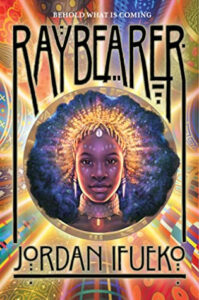 Raybearer by Jordan Ifueko (grades 9–12)
Raybearer by Jordan Ifueko (grades 9–12)
With dynamic writing, immersive texture, and lush atmosphere, Ifueko draws an intricate world steeped in West African culture and Yoruba that’s still brimming with cultural diversity. The book follows Tarisai, who has been raised in isolation by a distant, neglectful mother known only as The Lady. The Lady sends her to the capital of the global empire of Aritsar to compete with other children to be chosen as one of the Crown Prince’s Council of 11, opening the way for Tarisai to discover her sense of self as she grows from childhood to adulthood. Raybearer’s plethora of social topics weave between misogyny, the patriarchy, and colonization, while rooting themselves in the story of a girl who yearns for love and companionship. Her journey to self will invite teens to discover their own sense of purpose and forge their own destinies alongside her.
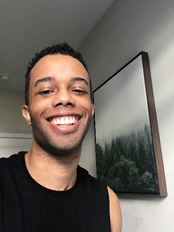
Ryan Douglass is an author, freelance writer, and former writing tutor from Atlanta, Georgia. He has written about race, literacy, toxic masculinity, and media representation for The Huffington Post, Atlanta Black Star, Everyday Feminism, LGBTQNation, and Medium, among others. His debut novel is a Get Out-inspired YA thriller due from Penguin/Putnam in the summer of 2021. Find him on Twitter @ryandouglassw.
NCTE and independent bookstores will receive a small commission from purchases made using the links above.
It is the policy of NCTE in all publications, including the Literacy & NCTE blog, to provide a forum for the open discussion of ideas concerning the content and the teaching of English and the language arts. Publicity accorded to any particular point of view does not imply endorsement by the Executive Committee, the Board of Directors, the staff, or the membership at large, except in announcements of policy, where such endorsement is clearly specified.

